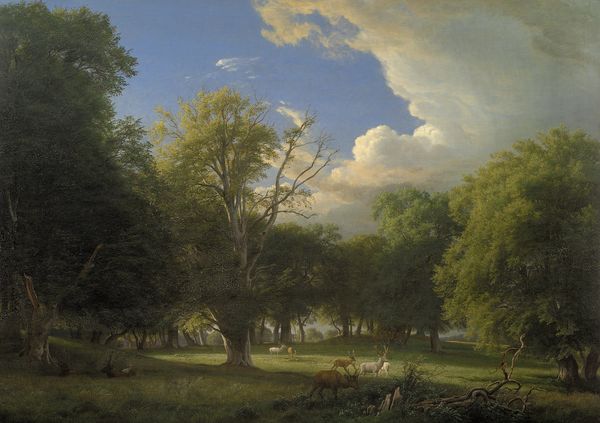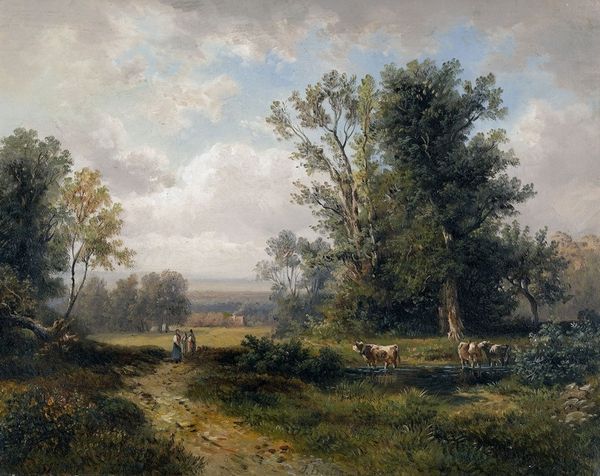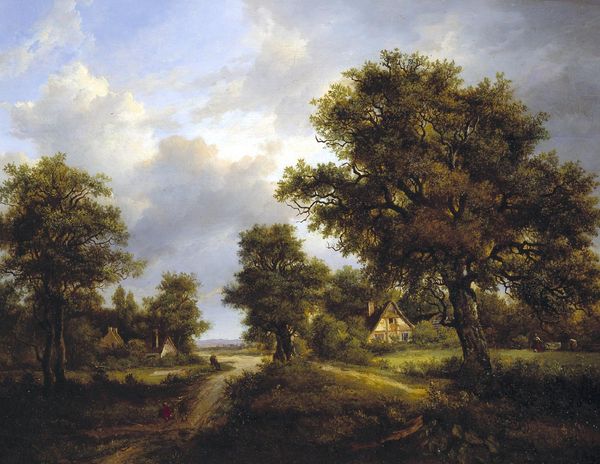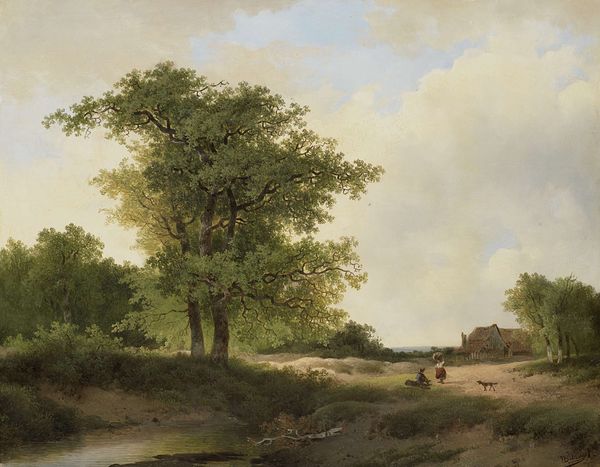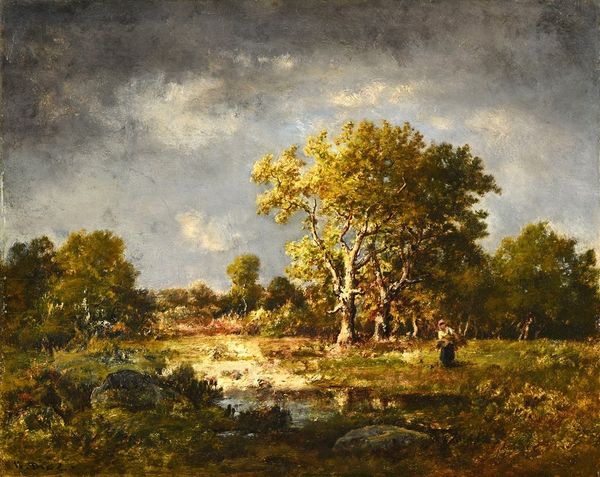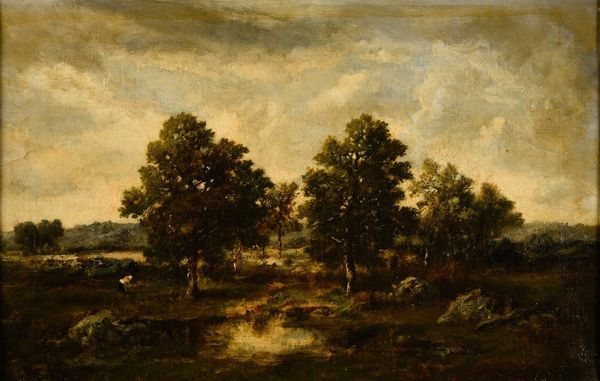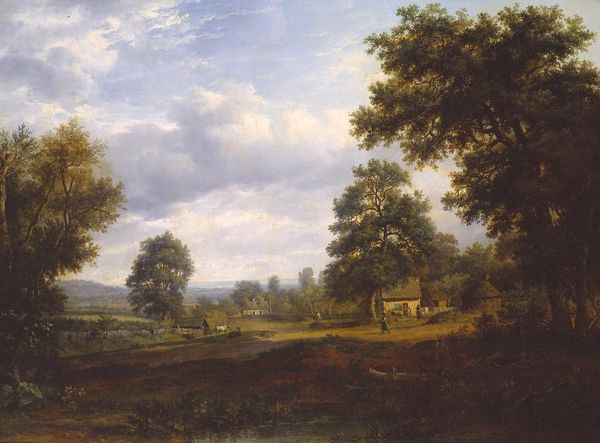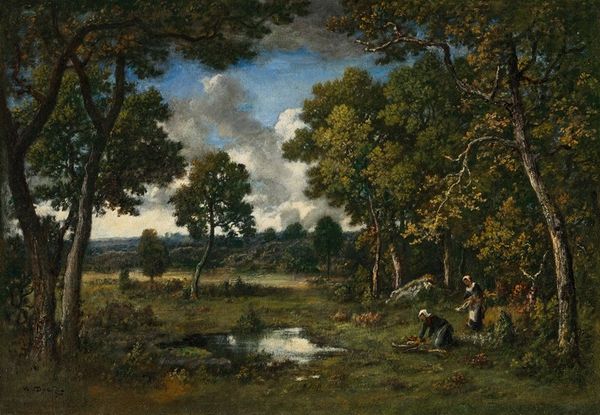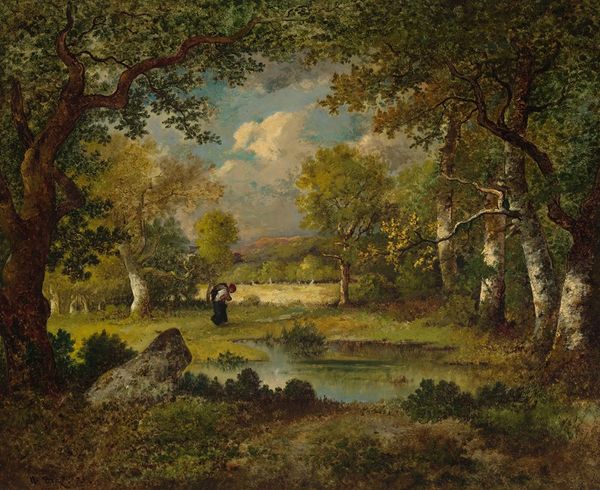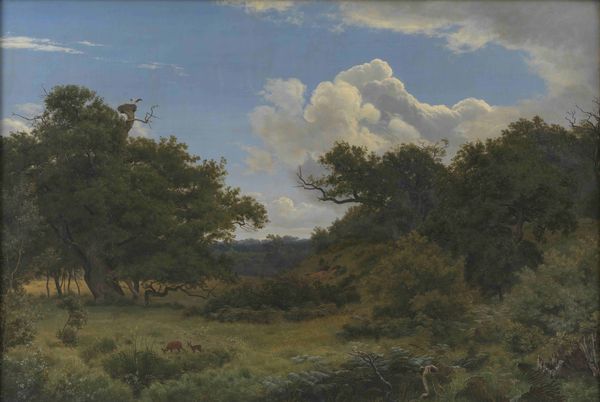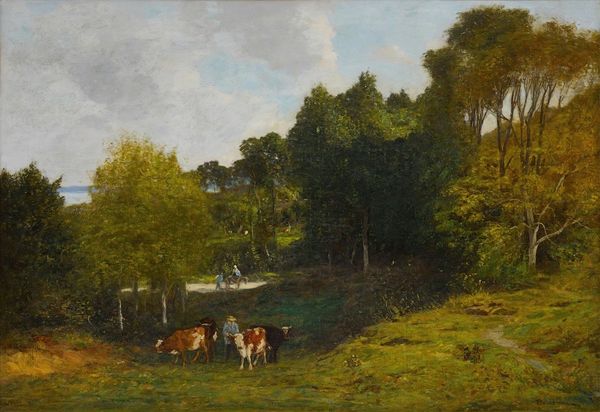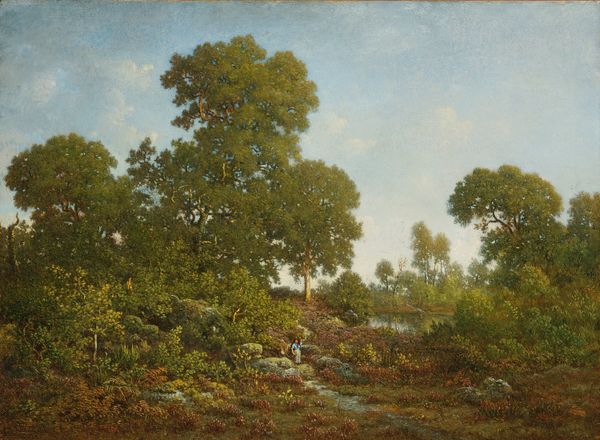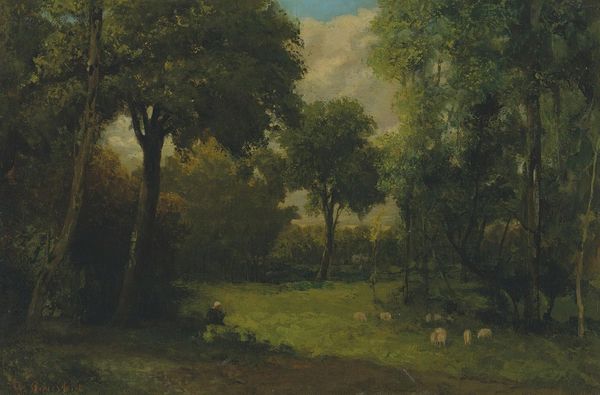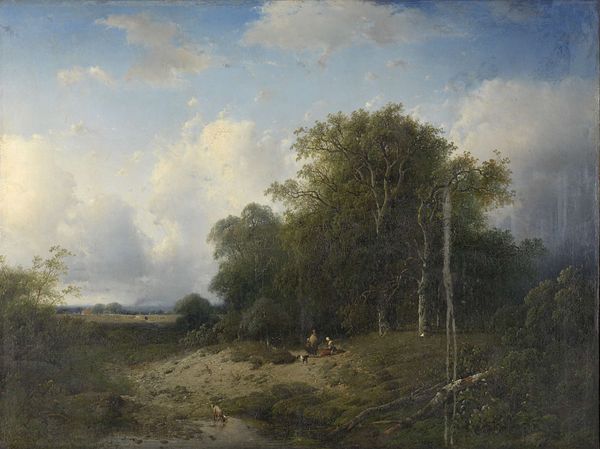
painting, oil-paint
#
painting
#
oil-paint
#
landscape
#
oil painting
#
romanticism
#
genre-painting
#
realism
Dimensions: height 81 cm, width 100 cm
Copyright: Rijks Museum: Open Domain
Editor: Here we have "Landscape near Hilversum," an oil painting by George Jacobus Johannes van Os, sometime in the 1820s or 30s. It’s a lovely pastoral scene. The detail in the trees is incredible, but what really catches my eye is how the artist captured the light filtering through the clouds. What are your initial thoughts on this work? Curator: My immediate reaction concerns the artist's engagement with materials readily available within his environment, juxtaposed with the demands of a market economy. The very pigments, likely sourced locally, were then skillfully applied to canvas – a manufactured good signifying trade and industry. Consider the societal pressures van Os navigated. Do you see any potential critique, however subtle, embedded in his idyllic portrayal? Editor: That's an interesting perspective. I hadn't thought about the contradiction between the natural subject matter and the manufactured materials. I guess I was too caught up in the romantic depiction of the landscape! Curator: Precisely! Note the laborious technique employed to achieve such realism. Each brushstroke represents time, effort, and skill – resources that were not equally accessible to all during that period. How might we interpret this abundance within the artwork itself? Is it merely aesthetic, or could it signify a statement about land ownership and resource distribution? Editor: I see what you mean. It does raise questions about who has access to this idealized version of nature. Thanks, I'm definitely going to look at landscapes with a different perspective now! Curator: Wonderful! Thinking critically about the materials and methods behind art helps us unravel broader societal narratives.
Comments
No comments
Be the first to comment and join the conversation on the ultimate creative platform.
